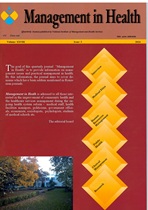Abstract
SARS-CoV-2 infection is a multisystem disease that produces long-term physical,
mental, cognitive, social, and vocational sequelae among survivors. The purpose
of this study was to highlight the importance of physiotherapy and psychotherapy
in the case of post-COVID-19 recovery as well as the general population’s
receptivity for these methods.
MATERIALS AND METHODS: A cross-sectional study was conducted using an
online questionnaire/ survey. The first 5 questions were aimed at collecting
demographic data (gender, age, background, level of education, income), whereas
the following 25 viewed information about SARS-CoV-2 infection (opinion on the
existence of the virus and the effectiveness of the vaccine, physical, social, and
psychological impact, as well as openness to recovery methods). A sample of
convenience of 203 people completed the questionnaire. Data collection took place
between May and August 2023.
RESULTS: Of the respondents, 80.3% had experienced SARS- CoV-2 infection.
Of the 170 who had been infected, 55.9% had a mild form, 20% moderate, and
24.1% severe. Of these, 71.2% required admission to the Intensive Care Unit and
of these more than half required mechanical ventilation. Nearly three quarters
(74.7%) of those who were infected did not seek the assistance of a
physiotherapist, and almost the same percentage (70.2%) did not seek the help of
a psychotherapist. Conclusion: The importance of physiotherapy and
psychotherapy in post-COVID-19 recovery is vital, physical, and mental problems
being much more numerous today than in the pre-COVID-19 era. The high cost
of psychotherapy is still an important consideration that must be considered in the
same way as that of physical therapy, as well as the lack of information of the
population regarding the benefit of these methods of therapy.

